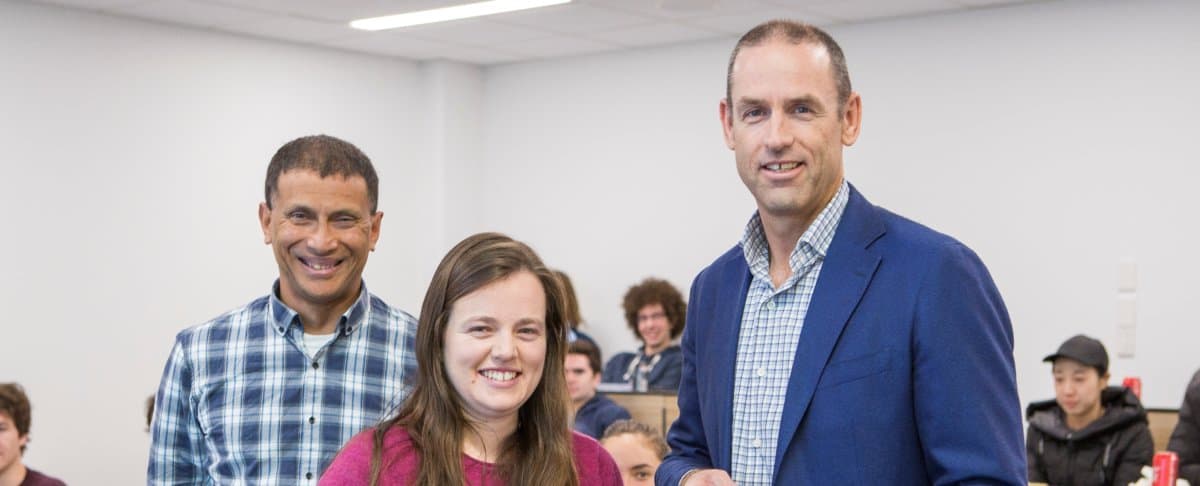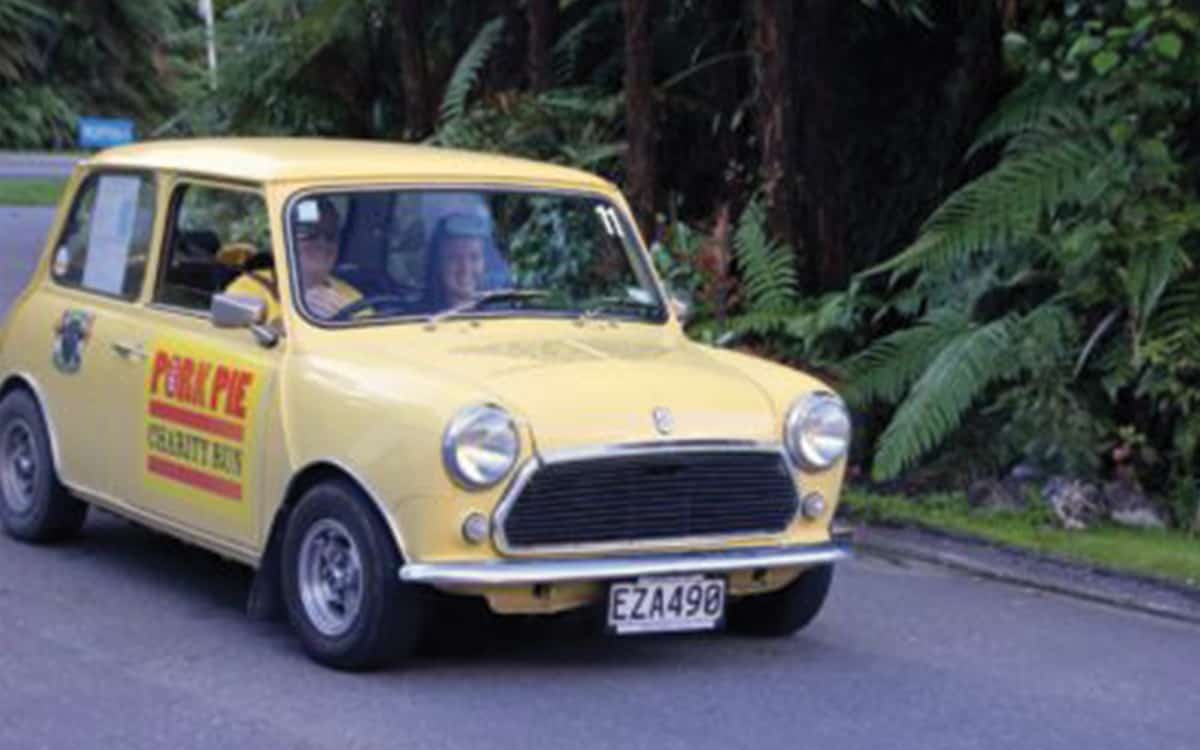In August 2018, Irene Anderson of the University of Canterbury in Christchurch, New Zealand, became the 14th winner of the PSC Scholarship. Irene earned the scholarship based on outstanding academic achievement, as well as a devotion to practical work experience which included assignments for Meridian Energy and Marlborough Lines, in NZ.

PSC presents a scholarship to Electrical Engineering student Irene Anderson (C), presented by Alex Boyd (R), President and CEO of PSC, and Ranil de Silva (L)
We caught up with Irene to learn a little more about the ambitious engineer.
You attend the University of Canterbury in Christchurch, New Zealand. Did you grow up nearby?
I’m originally from Methven, a small town of about 1800 people, located just over an hour inland from Christchurch. It’s at the base of Mount Hutt ski area, and a short drive from the Rakaia Gorge. It’s predominantly a farming community, however in winter ski field workers and tourists boost the area’s activity.
What did you like best about growing up in a small town?
I think growing up in a small community gives you the opportunity to interact with a much broader range of people and know that there will always be someone around who will help you if you need it. Since moving to Christchurch to attend university, I have come to appreciate the peacefulness and friendliness of Methven whenever I go home.
Do you have any tips for a first-time visitor to New Zealand?
There are many hidden natural wonders within New Zealand, many of which I haven’t even seen myself. Having driven the length of the country multiple times, I would recommend a road trip through the country. The climate and landscape can change significantly throughout the islands, and I would allow more time than you think to stop at various spots along the way.
What do you do for leisure?
Growing up in Methven, I have loved skiing basically all my life. Throughout my time at school I played netball* and tennis. Since coming to University I have started running, and in the past 3 years I have completed 6 half marathons. My family own a jet boat, so I enjoy spending time boating, fishing and water-skiing.
Sounds like you stay active! Um, what’s netball?
Netball was developed as an adaption of basketball, traditionally a women’s sport. Teams of seven players score points by throwing the ball through the hoop, but there are many additional rules, such as no stepping, set playing areas, a maximum time of three seconds to hold the ball and no contact. Other rules exist too, and it does seem complicated at the start!
OK, tell me about the Mini…

Irene and her father participating in the annual Pork Pie Charity Run in their 1980 Mini.
I have a 1980 yellow Mini, which I have had for 10 years. My dad and I have driven the length of the country in it multiple times, completing the Pork Pie Charity Run. This is based on the New Zealand film “Goodbye Pork Pie” and every second year 60 Minis drive from the top of the country to the bottom, over 6 days, raising money for charity. It’s a lot of fun and a great way to see the country!
Have you always been interested in engineering? What first drew you to power systems as a field of study?
I spent holidays helping my dad who is an electrician, and I found the idea of electricity – something that has energy, but you cannot see – interesting and challenging. The idea of power systems appealed to me because of the significance it plays in everyone’s everyday life. Ironically, most people don’t think about it until something goes wrong.
What specifically are you studying at UC?
I am in my fourth and final year of studying a Bachelor of Engineering (Hons) in Electrical Engineering with a minor in Power Systems. This year my papers include control systems, nanotechnology, power systems, electrical machines, renewable energy, power electronics and a full year project which is focused on assessing the condition of overhead power lines.
You are beginning your career in a time of radical change. What excites you most about the future of the power industry?
The potential for change in the future, with new generation systems being installed in the network, companies must be proactive in ensuring these changes can be integrated in a way which allows continued operation as expected by customers.
Let’s talk about your dream job. What do you want to be doing in 5 years? What do you want to be involved in?
I have a graduate job at a distribution company, where I hope to gain experience in a range of work. I think it is hugely important to think about the practicality of design implementation, and spending time in the field will help this understanding. Ultimately, I want to be involved in ensuring the power industry can continue to meet consumer needs, which are set to change in the future.
Your career is just getting underway. What would you say to the next generation of young engineers, who might just be discovering a passion for the way things work, and who want to build a better world?
Keep asking questions and don’t give up just because something hasn’t been done before. Things are changing and being developed faster than most people can keep up with, so who knows what will be possible in the future. Be sure to think about the future and sustainability.
